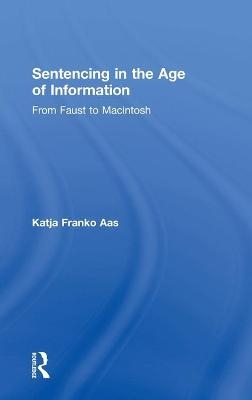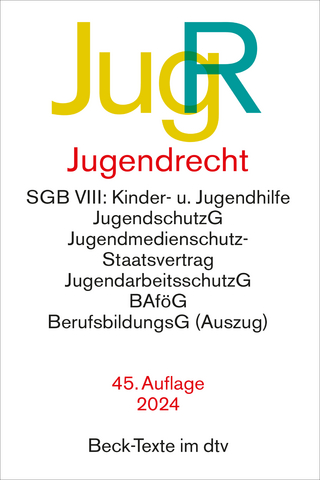
Sentencing in the Age of Information
From Faust to Macintosh
Seiten
2005
Routledge Cavendish (Verlag)
978-1-904385-39-4 (ISBN)
Routledge Cavendish (Verlag)
978-1-904385-39-4 (ISBN)
Applying media and communication studies to sentencing and penal culture, Franko Aas offers a lucid and innovative account of how punishment is adjusting to a new cultural climate.
How does the fact that we live in information societies reflect on the nature of penal discourse and practice? Applying media and communication studies to sentencing and penal culture, Kate Franko Aas offers a lucid and innovative account of how punishment is adjusting to a new cultural climate marked by growing demands for information processing, transparency and accountability.
This significant book explores a number of recent penal developments, such as risk assessment instruments, sentencing guidelines and computerized sentencing information systems, and argues that they are instruments of justice with so-called Macintosh traits, offering pre-programmed answers and solutions.
Franko Aas touches upon issues of decision-making at-a-distance, the exercise of discretion, databases, disembodiment and the changing nature of subjectivity. She explores information technology as a cultural environment with profound implications for the nature of penal knowledge, governance and identity constitution.
Sentencing in the Age of Information is essential reading for scholars and students interested in sentencing, penal culture, criminology, sociology of law and media and communication studies.
Joint winner of the 2006 Hart/Socio-Legal Studies Association Book Prize.
How does the fact that we live in information societies reflect on the nature of penal discourse and practice? Applying media and communication studies to sentencing and penal culture, Kate Franko Aas offers a lucid and innovative account of how punishment is adjusting to a new cultural climate marked by growing demands for information processing, transparency and accountability.
This significant book explores a number of recent penal developments, such as risk assessment instruments, sentencing guidelines and computerized sentencing information systems, and argues that they are instruments of justice with so-called Macintosh traits, offering pre-programmed answers and solutions.
Franko Aas touches upon issues of decision-making at-a-distance, the exercise of discretion, databases, disembodiment and the changing nature of subjectivity. She explores information technology as a cultural environment with profound implications for the nature of penal knowledge, governance and identity constitution.
Sentencing in the Age of Information is essential reading for scholars and students interested in sentencing, penal culture, criminology, sociology of law and media and communication studies.
Joint winner of the 2006 Hart/Socio-Legal Studies Association Book Prize.
Katja Franko Aas
Introduction. 'Sentencing-at-a-Distance'. How Information Lost its Body. Computerized Justice as a Trend. The End of 'Delinquent With a Soul'. Data-Vidual. From Faust to Macintosh
| Erscheint lt. Verlag | 25.2.2005 |
|---|---|
| Verlagsort | London |
| Sprache | englisch |
| Maße | 156 x 234 mm |
| Gewicht | 476 g |
| Themenwelt | Recht / Steuern ► Allgemeines / Lexika |
| Recht / Steuern ► Arbeits- / Sozialrecht ► Sozialrecht | |
| Recht / Steuern ► EU / Internationales Recht | |
| Recht / Steuern ► Strafrecht ► Kriminologie | |
| ISBN-10 | 1-904385-39-7 / 1904385397 |
| ISBN-13 | 978-1-904385-39-4 / 9781904385394 |
| Zustand | Neuware |
| Haben Sie eine Frage zum Produkt? |
Mehr entdecken
aus dem Bereich
aus dem Bereich
Textausgabe mit ausführlichem Sachverzeichnis
Buch | Softcover (2024)
dtv Verlagsgesellschaft
20,90 €
meine Rechte: Wohnen, Arbeiten, Steuern, Mobilität
Buch | Softcover (2024)
C.H.Beck (Verlag)
11,90 €


